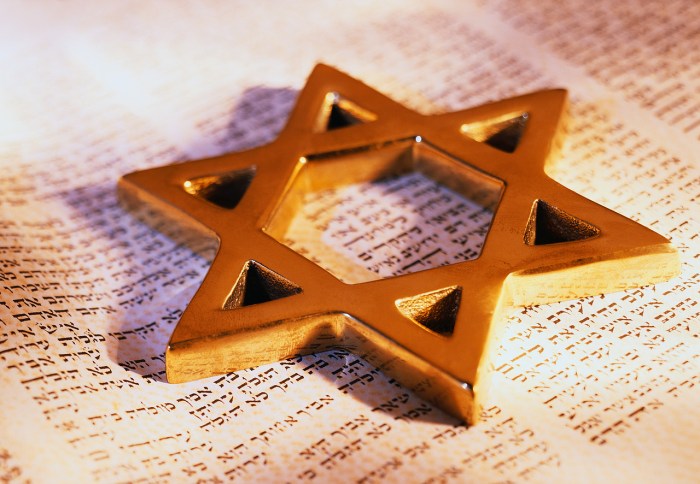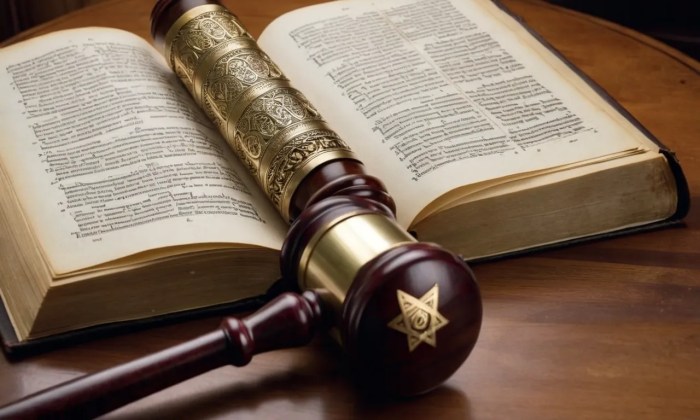Judaism emphasizes the rule of law by holding society accountable, a principle that has shaped Jewish life for centuries. This concept, known as Halakha, encompasses a comprehensive legal system that governs all aspects of Jewish life, from personal conduct to communal affairs.
The sources of Jewish law are vast and include the Torah, Talmud, and rabbinic commentaries. These texts provide a framework for understanding the principles of Halakha and how they should be applied in practice.
Jewish Law and Its Sources: Judaism Emphasizes The Rule Of Law By Holding

Jewish law, known as Halakha, is the body of religious laws that govern the lives of Jews. Halakha is derived from the Torah, the written revelation given to Moses on Mount Sinai, and the Talmud, a collection of rabbinic commentaries and interpretations of the Torah.
Halakha covers all aspects of Jewish life, from personal conduct to business dealings to community affairs.
The Role of the Rule of Law in Jewish Society
The rule of law is essential to Jewish society. Jewish law provides a framework for how Jews should live their lives and interact with each other. By following the rule of law, Jews create a just and harmonious society.
The Enforcement of Jewish Law, Judaism emphasizes the rule of law by holding
Jewish law is enforced by Jewish courts and tribunals. These courts have the authority to hear cases and issue rulings on matters of Jewish law. In some cases, Jewish courts can also impose punishments for violations of Jewish law.
The Relationship Between Jewish Law and Secular Law

The relationship between Jewish law and secular law has varied throughout history. In some periods, Jewish law has been the primary legal system for Jews, while in other periods it has been subordinate to secular law. Today, Jewish law continues to play an important role in the lives of many Jews, even in countries where secular law is the primary legal system.
The Impact of Jewish Law on Western Legal Systems
Jewish law has had a significant impact on the development of Western legal systems. Many of the basic principles of Western law, such as the rule of law, the presumption of innocence, and the right to a fair trial, can be traced back to Jewish law.
Contemporary Issues in Jewish Law

Jewish law is constantly evolving to address new challenges. Some of the contemporary issues that Jewish law is addressing include reproductive rights, LGBTQ+ issues, and environmental protection.
FAQ Guide
What is the significance of Halakha in Judaism?
Halakha is the comprehensive legal system that governs all aspects of Jewish life, providing a framework for ethical conduct and communal living.
How does Jewish law enforce its rulings?
Jewish courts and tribunals play a crucial role in enforcing Jewish law, adjudicating disputes and imposing punishments for violations.
What is the relationship between Jewish law and secular law?
The relationship between Jewish law and secular law has varied historically and across different societies, with both challenges and opportunities arising from their interaction.